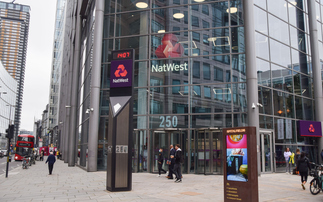Divestment Summit in Paris today declares it a 'moral necessity' to ditch fossil fuel investments, as climate talks continue in Bonn
The burgeoning campaign for companies and organisations to divest their fossil fuel assets stepped up a notch today with the launch of a major conference in Paris, designed to increase pressure on governments as the long-running United Nations climate change talks enter the final straight before a major summit in the French capital at the end of this year.
Senior executives and campaigners, including Rockefeller Brothers Fund President Stephen Heintz, are today speaking at the day-long summit in Paris, which is hosted by 350.org and the European Greens and aims to drive further momentum behind the divestment campaign ahead of December's 21st Conference of the Parties (COP21) where world leaders are expected to sign a global deal to tackle climate change.
May Boeve, 350.org executive director, used the meeting to describe divestment as a "moral necessity" for all of the governments and businesses calling for an ambitious Paris climate treaty. "If you say you want action in Paris, then you have a responsibility to divest from fossil fuels," she said. "By shifting resources from the dirty energy of the past to the 100 per cent renewable energy of the future, institutions can model the type of action we need from countries at COP21."
The conference is timed to coincide with the second day of the latest round of climate negotiations in Bonn, Germany this week, where officials are working to streamline the negotiating text world leaders are expected to finalise in Paris in December.
With fewer than 10 official negotiating days left before the Paris Summit, countries are trying to whittle down the 83-page text to a more manageable size.
The UN last week expressed optimism about the state of the talks, detailing how countries covering around 70 per cent of global emissions have formally submitted national climate action plans, which are expected to provide the basis of a new international accord.
Academics and green groups have focused their calls on the need for the new treaty to include a "ratcheting mechanism", that would require countries to review and step up the carbon reduction targets set out in their action plans, or Intended Nationally Determined Contributions (INDCs) in the UN jargon, every five years following 2020.
Research has consistently shown the pledges that countries have put forward to reduce their greenhouse gas emissions in their INCDs will not be enough to limit global warming to 2C - the level agreed by countries to prevent dangerous levels of climate change.
In a paper published yesterday by the London School of Economics' Grantham Research Institute on Climate Change, Lord Nicholas Stern, Rodney Boyd and Fergus Green, argued the Paris Summit could still be deemed a success if it encourages countries to increase the ambition of their emission reduction efforts in future.
Martin Kaiser of Greenpeace agreed a ratcheting mechanism was crucial to the success of the talks. "It has long been clear that the submitted and expected INDCs won't add up to the level of commitment needed to prevent catastrophic global warming," he said in a statement. "As a result, the agreement in Paris needs to be structured to scale up action. Key to this acceleration of ambition are commitments made every five years towards a long-term goal on mitigation. That goal needs to lead to a phase-out of fossil fuels and deliver 100 per cent renewable energy by mid century."
As the talks kicked off yesterday, experts seemed hopeful that a deal could be achieved in Paris, despite continuing discord between countries on what should be included in the text.
Elina Bardram, head of the European Commission delegation, told Reuters that the signs were more optimistic at this stage in the talks than they had been at the same stage in 2009, ahead of the failed Copenhagen negotiations.
After the previous summit in Bonn earlier this year, the UN's lead climate negotiators went away to consolidate the key points and reduce the number of pages in the text.
But the document still contains a number of contrasting views, with poorer countries calling for an end to all greenhouse gas emissions by the middle of the century, and oil producing nations resisting any such deadline. Similarly, long-standing disagreements over how funding for climate resilience and mitigation measures in poorer nations should be mobilised continue to mar the talks.
Yvo de Boer, former UN climate chief who presided over the Copenhagen talks and current head of the Global Green Growth Institute in Seoul, said he was optimistic a deal could be reached later this year.
However, he also raised concerns about France's decision to invite prime ministers and presidents to the first day of the two-week summit.
"If the high-level segment is at the beginning of the COP [conference of parties], what purpose is it supposed to serve?" he told RTCC. "My experience is, politicians travel in order to celebrate success. To fly to Paris and just show a bit of leg at the beginning of a conference is not really enough of a reason."
But one thing everyone is agreed on is that time is running out ahead of the Paris conference. Following this week's talks, there remains just one more round of talks in Bonn in October.
Rob Marsh, partner at the global legal practice Norton Rose Fulbright, said negotiating time between now and the end of COP21 is fast running out. He said the next round of talks provide an opportunity for countries to set a clear path to Paris, but warned continued delay could yet derail progress.
"This would dampen expectations and possibly reduce the focus that many industry sectors are currently affording the COP," he warned.
This article is part of BusinessGreen's Road to Paris Hub, hosted in association with PwC










